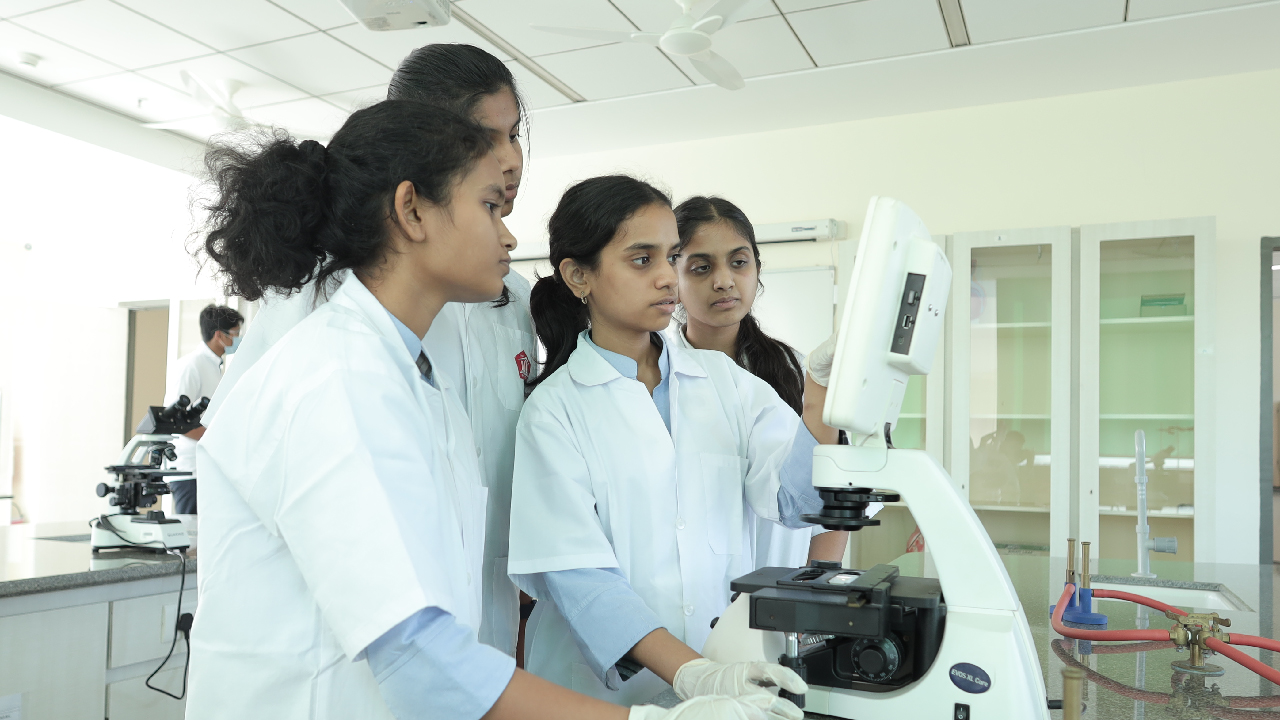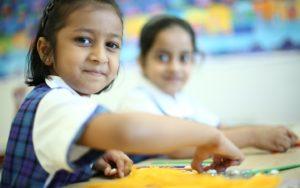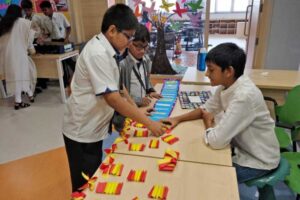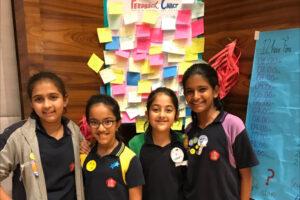Blogs
Chatrabhuj Narsee’s Authentic Assessment Journey: Moving Beyond Standardized Testing

In the ever-evolving landscape of education, Chatrabhuj Narsee School (CNS) in Mumbai stands as a beacon of progressive learning, challenging traditional norms and embracing innovative approaches to assessment. Recognizing the limitations of standardized testing, CNS has embarked on a journey towards authentic assessment, aiming to measure student learning in a more holistic and meaningful way.
The Limitations of Standardized Testing
Standardized tests, while providing a snapshot of student performance, often fall short of capturing the full spectrum of their abilities and potential. They tend to focus on rote memorization and narrow skill sets, neglecting critical aspects like creativity, problem-solving, and real-world application of knowledge.
CNS believes that true learning extends beyond ticking boxes on a multiple-choice exam. By focusing solely on standardized tests, students may be disincentivized from exploring their passions, delving deeper into subjects of interest, and developing essential life skills.
Embracing Authentic Assessment
Authentic assessment is a paradigm shift that moves away from traditional testing methods and embraces a more comprehensive evaluation of student learning. It emphasizes the application of knowledge and skills in real-world contexts, allowing students to demonstrate their understanding in ways that are relevant and meaningful.
CNS has adopted a multi-faceted approach to authentic assessment, incorporating a variety of tools and techniques to gauge student progress:
1. Portfolios: Students curate portfolios showcasing their best work across different subjects and disciplines. These portfolios provide a comprehensive view of their learning journey, highlighting their growth, strengths, and areas for improvement.
2. Performances: Students participate in presentations, debates, skits, and other performances to showcase their understanding of concepts and their ability to communicate effectively. This allows them to demonstrate creativity, critical thinking, and collaboration skills.
3. Project-Based Learning: Students engage in hands-on projects that address real-world problems. These projects encourage them to apply their knowledge in practical settings, collaborate with peers, and develop problem-solving and decision-making skills.
4. Self-Assessment and Reflection: Students are encouraged to reflect on their learning experiences, identify areas for growth, and set goals for themselves. This fosters self-awareness and a sense of ownership over their learning journey.
Practical Examples
• Language Arts: Instead of relying solely on grammar tests, students create multimedia presentations, write persuasive essays on current events, or engage in debates on social issues.
• Science: Students design experiments, conduct research, and present their findings on topics relevant to their lives, such as environmental sustainability or health and wellness.
• Mathematics: Students solve real-world problems involving financial literacy, data analysis, or geometric principles, showcasing their ability to apply mathematical concepts in practical situations.
Benefits of Authentic Assessment
The adoption of authentic assessment at CNS has yielded numerous benefits:
• Increased Student Engagement: Students are more motivated and invested in their learning when they can see the relevance and real-world applications of what they are studying.
• Deeper Understanding: Authentic assessments require students to go beyond surface-level knowledge and demonstrate a deeper understanding of concepts and their interconnections.
• Development of 21st Century Skills: Authentic assessments foster critical thinking, creativity, collaboration, communication, and other essential skills that are crucial for success in the 21st century.
• Personalized Learning: By focusing on individual strengths and areas for growth, authentic assessments allow for a more personalized and tailored approach to learning.
Challenges and Future Directions
While the journey towards authentic assessment has been transformative for CNS, it has not been without its challenges. Designing and implementing effective authentic assessments requires significant time, resources, and expertise.
However, CNS remains committed to its vision of a more holistic and meaningful approach to education. The school continues to invest in professional development for teachers, refine assessment tools and techniques, and engage in dialogue with other schools and educational institutions to share best practices and learn from each other’s experiences.
Conclusion:
Chatrabhuj Narsee School’s embrace of authentic assessment is a testament to its dedication to providing a well-rounded education that prepares students for the complexities of the real world. By moving beyond standardized testing, CNS is empowering its students to become critical thinkers, creative problem solvers, and lifelong learners.
The school’s innovative approach to assessment serves as an inspiration for other educational institutions seeking to transform the learning experience for their students.





